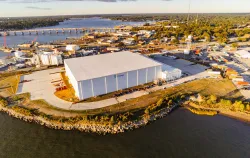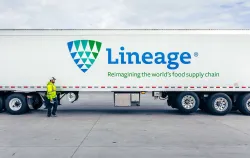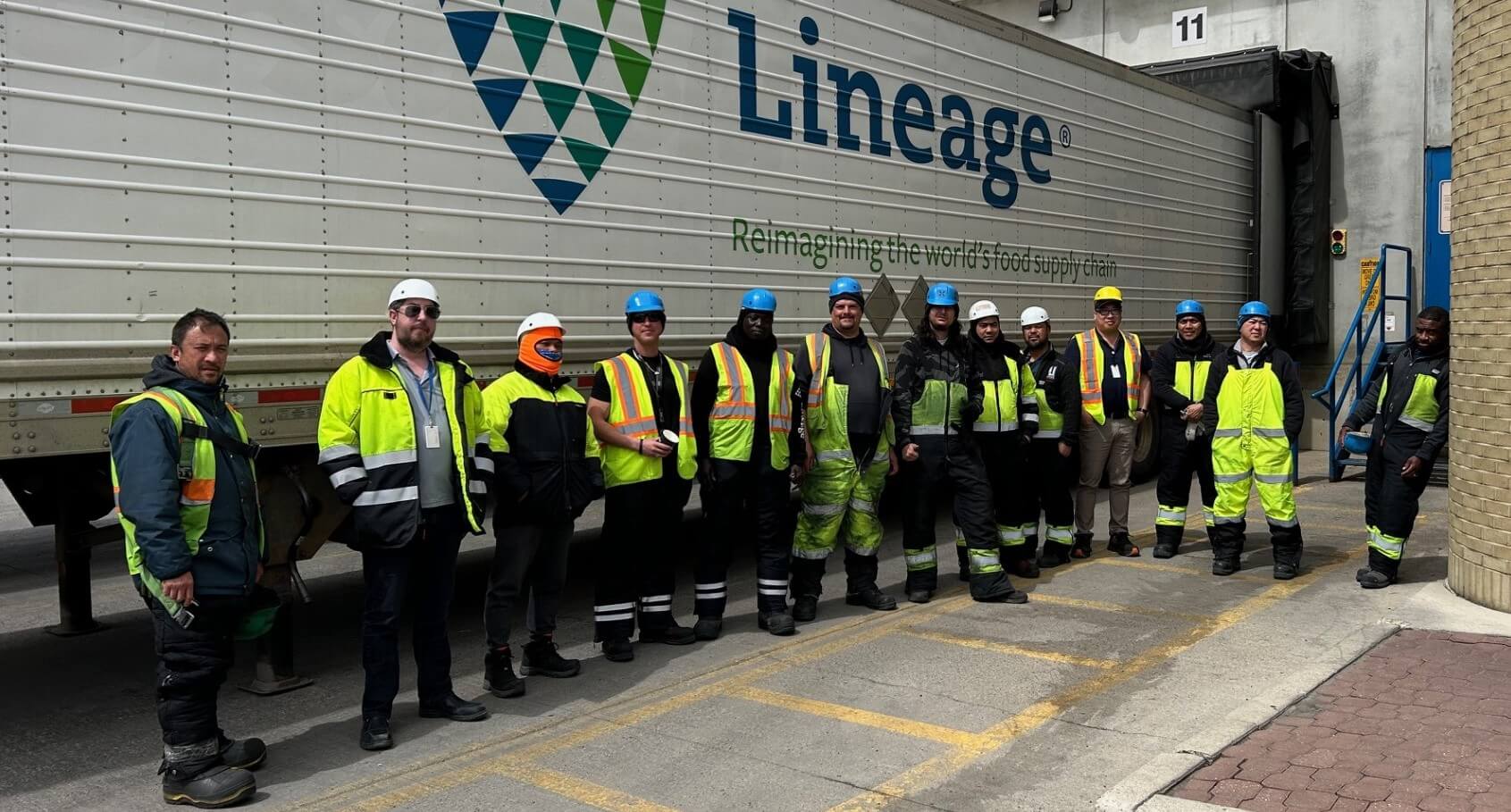Conversations That Keep Us Safer: Calgary’s Culture in Action
June 16, 2025
At Lineage, safety isn’t just a number on a board. It’s a culture of accountability, trust and daily conversations that helps keep our teams safe. Nowhere is that more evident than at our Calgary – Great Plains site, where a long streak without a lost time injury came to an end—but the strength and resilience of the safety culture only deepened.
For more than four years, the Calgary team operated without a single lost time incident. That record was a source of quiet pride, built on a foundation of proactive habits, peer-to-peer coaching and leadership that led from the floor, not from a secluded office. But when two trip-and-fall incidents occurred within weeks of each other in early 2024, the focus didn’t shift to blame or disappointment. Instead, it turned to recovery, reflection and renewed commitment.
"Nobody was down about the number," said Wade Rogers, Operations Manager at the site. "We didn’t lose a streak. We had someone get hurt. That’s what mattered."
A Culture Grounded in What Matters
At Great Plains, safety has never been about incentives or accolades. The focus has always been on the core goal: helping ensure everyone goes home safe at the end of their shift. There were no pizza parties for hitting milestones, no clocks counting days since the last incident, no agonizing over setting safety records.
"We tried not to make the number the benchmark," Wade explained. "The focus has always been on how we work together to get better and stay safe."
That perspective proved crucial when the incidents occurred. Rather than morale dropping, team members responded by bringing suggestions to the daily toolbox meetings—from parking equipment further apart to revisiting how and where machines were staged on the floor. Communication didn’t stall. It expanded.
Listening, Not Lecturing
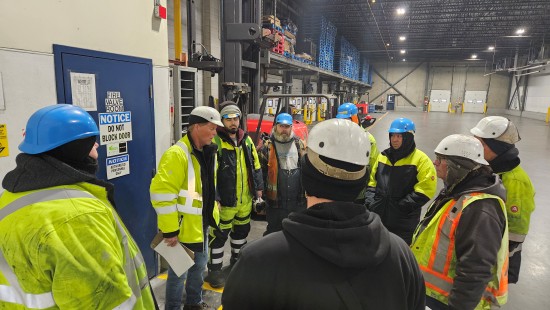 Every shift at Great Plains starts with a toolbox meeting. These aren’t top-down briefings or corporate lectures. They’re team conversations where updates are shared, safety topics are reviewed and every team member is empowered to contribute ideas or voice concerns.
Every shift at Great Plains starts with a toolbox meeting. These aren’t top-down briefings or corporate lectures. They’re team conversations where updates are shared, safety topics are reviewed and every team member is empowered to contribute ideas or voice concerns.
It sets a daily rhythm, one that builds trust by giving everyone a voice in how to improve. It’s also a space where small changes turn into lasting improvements—from adjusting door access to better match foot traffic, to something as specific as choosing the right gloves for the job.
"Those meetings let us adjust in real time," said Wade. "The guys on the floor tell us what’s working and what’s not. And when we listen, they keep talking."
Technology That Supports, Not Punishes
In the past year, the Great Plains team introduced two new tools: iWarehouse impact sensors and the Samsara BBSO app, which supervisors use to complete behavior-based safety observations.
With these tools, the team tracks avoidable repair costs, monitors operator behavior and identifies patterns without creating a punitive environment. At the start, Wade ran the tools in the background—gathering baseline data before activating alerts. Once the systems went live, the team started seeing encouraging signs, including operators correcting behaviors on their own, without the need for intervention.
"It’s about coaching, not catching," Wade said. “That’s what I wanted—for it to be a teaching tool, not a punishment tool.”
That principle drives every improvement. When trends show tire damage increasing, Wade doesn’t jump to discipline—he starts a conversation to get to the bottom of it, bringing in mechanics and encouraging vendors to address flaws. Observations from the safety technology aren’t used to penalize, they’re used to identify opportunities, start a dialogue and get better.
Leadership That Stays on the Floor
One of the keys to the Great Plains’ culture is in the makeup of its leadership team. Wade, a longtime warehouse operator who began his career repairing pallets on the dock, emphasized that the entire supervisor team came up from the floor. That lived experience informs how they lead. They’re able to meet team members where they are. Their shared experience allows them to understand the work, because they’ve done it.
"We don’t manage from spreadsheets. We manage from the floor," he said.
That mindset extends across the region. In Canada, many of Lineage’s general managers have risen through warehouse and transportation roles, building their leadership on a foundation of practical experience. It’s a model that fosters mutual respect, consistent coaching and credibility when change needs to happen.
A Region That Learns Together
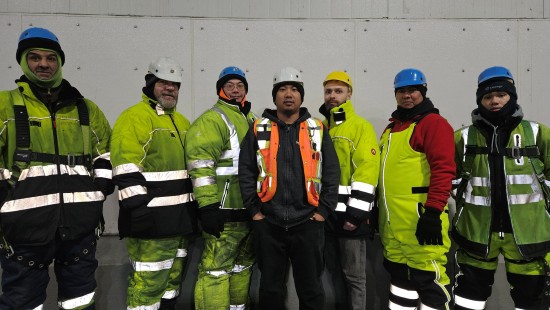 When an incident happens at one Canadian site, the lesson is shared across the network. The Great Plains team reviews SMAT alerts from other facilities in their toolbox meetings every week, proactively adapting and retraining when necessary.
When an incident happens at one Canadian site, the lesson is shared across the network. The Great Plains team reviews SMAT alerts from other facilities in their toolbox meetings every week, proactively adapting and retraining when necessary.
This year alone, the team at Great Plains has held ten retraining sessions on trailer restraint policies—even though the site hasn’t had a trailer pullout incident in over 15 years. It’s not about checking a box. It’s about reinforcing what works and adapting when it doesn’t.
Safety Week, Every Week
Each year, Lineage facilities across Canada participate in NAOSH (North American Occupational Safety and Health) Week in May, with activities designed to promote safety ownership and awareness. The Great Plains team takes it seriously. They’ve hosted safety simulations, including a fall recovery demonstration using a portable winch, welcomed guest speakers and created interactive quizzes and food-safe demos as part of their daily huddles.
But the energy doesn’t stop once the week is over.
The same team-led approach and focus on iterative improvements carries into every shift, every meeting, every decision. Toolbox talks stay interactive. Training stays hands-on. And safety remains everyone’s job, not just during one week of the year—but every week.
The Real Safety Benchmark Is Trust
Wade is the first to say it: a streak is nice, but it’s not the measure of success. What matters is that team members trust each other, feel safe speaking up and take pride in keeping one another safe.
"Communication is everything," he said. "And it doesn’t happen from the office. It happens on the floor. You build it, and then you keep showing up for it."
At Lineage, safety truly is a conversation, and the conversation never stops. Because of that, our team is safer—and stronger—than ever.
